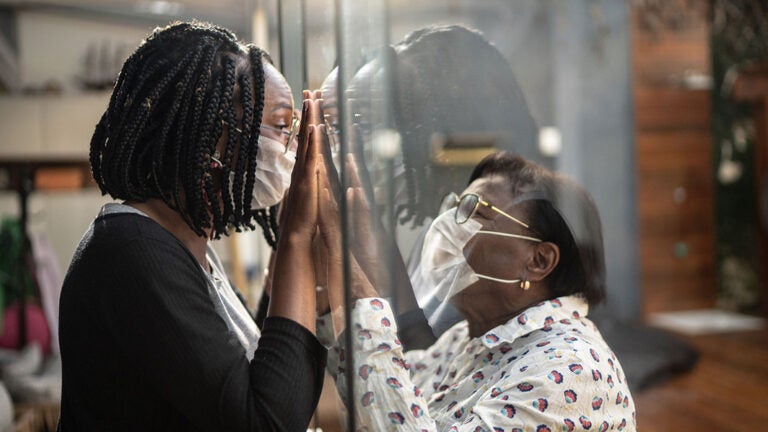
It’s Black History Month, but do Black families feel like celebrating?
As a program manager for the USC Dornsife Cecil Murray Center for Community Engagement, the Rev. Najuma Smith-Pollard combines her experience as a pastor and a community leader to run training programs for pastors doing civic engagement.
In addition to running the center at the USC Dornsife College of Letters, Arts and Sciences, Smith-Pollard is also a motivational speaker, author, life coach, radio personality and community activist.
She answered questions on how it feels to celebrate Black History Month during a difficult time for many Black families and communities.
Is this year’s national theme of Black History Month, the Black family, fitting?
I think everything, including Black History Month, must be viewed through the lens of this multilayered pandemic. The other layers include the racial injustices we face and the political climate from the White House on down. The Black family is feeling the weight of the pandemic. And while we are moving into Black History Month, it has been an historic Black year. I say that in the context of all that Black families have contended with and continue to contend with. …
… The reality is, many Black folks don’t want a Black History Month. Right now, Black folks want to get paid. They want jobs. They want their kids to have an equitable education. They want their brothers and sisters, uncles and fathers to stop being killed by the police and traumatized by the police. And while we know that no department is responsible for another, we saw police let rioters into the U.S. Capitol with no degree of tension. As a Black person watching that, it’s an affront, an insult to my Blackness.
We have to highlight the names and faces of so many Black people who have made this country great, but it’s a cheap consolation prize for all that Black families are enduring, not to mention the suspended grief.
As a pastor, you’re personally seeing how the COVID-19 pandemic has disproportionately harmed Black families. Is that what you mean by suspended grief?
As a pastor my role is to be engaged in all parts of life, including funerals. Two or three times a week, Black families hear about family members and friends dying of COVID-19 because Black and Latino families are the hardest hit. You might get news about one on Monday, but you can’t even grieve that because by Wednesday or Thursday somebody else has died. Black families are experiencing suspended grief that they can’t actually process because there are too many deaths in between.
And at the same time, Black families are still finding ways to be hopeful. We will look to Black History Month to give us those reminders of hope. We look at young ladies and men who are doing amazing things and see the resiliency of Black families. We will look to the narratives and the stories of our ancestors, and the trailblazers and the legend makers, and we will find hope and then we will create some new stories.
If you had to have a call to action for this month, what would it be?
What’s coming up in my mind is “believe Black families.” If they tell you they need money to come from the government, believe them. Or when Black families tell you it’s hard — it’s not a hoax. Believe when they tell you we have a reason to be concerned about police. If I believe that you’re really hurting, that’s the human expectation. It starts with belief. So, I would say, believe Black families when they tell you their stories and their challenges.